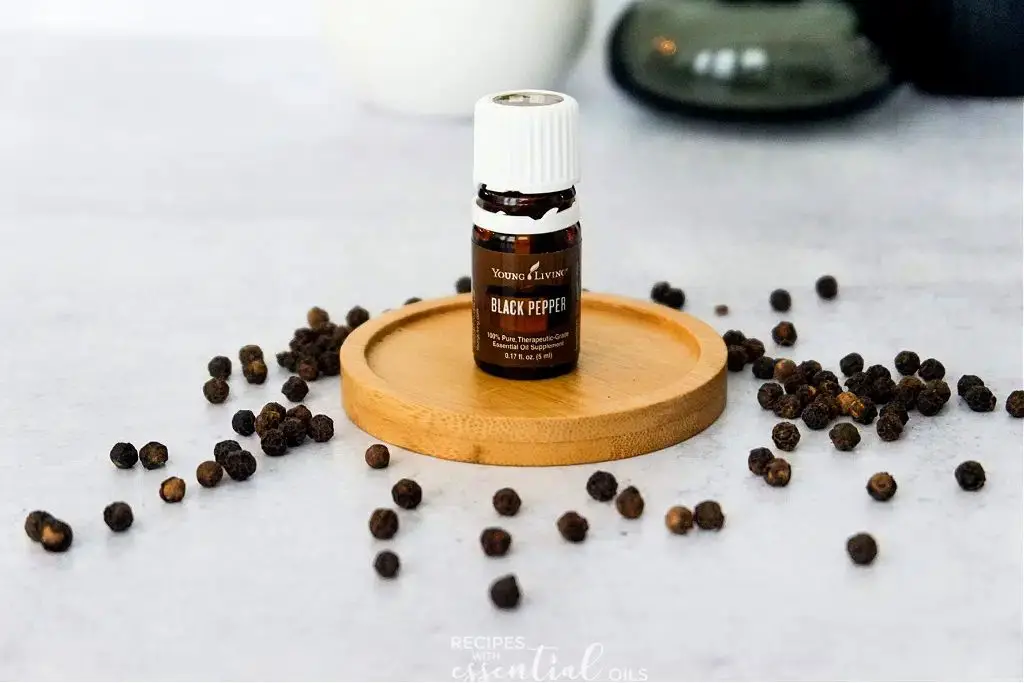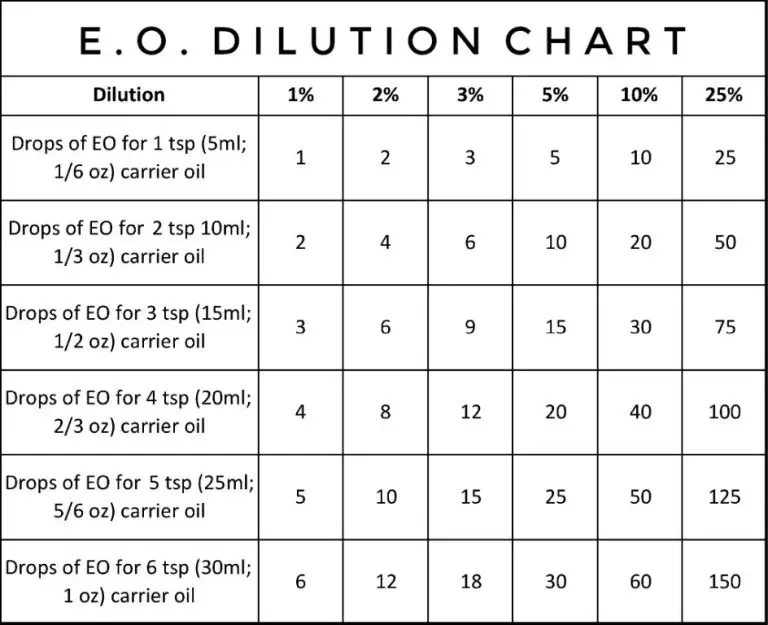Is Black Pepper Essential Oil Good For Quitting Smoking?
Black pepper essential oil has become increasingly popular in recent years due to its invigorating and energizing aroma. Derived from black peppercorns, this spicy essential oil is said to offer a variety of health benefits, from improving digestion and circulation to alleviating aches and pains.
One proposed benefit of black pepper oil that has generated significant interest is its potential ability to help people quit smoking. The sharp, peppery scent is believed to help curb cravings and reduce withdrawal symptoms. But does the evidence support these claims? Is black pepper oil truly an effective tool for smoking cessation?
This article will provide an in-depth exploration of black pepper essential oil and its potential role in helping people quit smoking. We’ll examine how black pepper oil is made, its proposed benefits, the science behind using it to quit smoking, safe usage guidelines, and additional natural remedies that may support smoking cessation efforts.
How Black Pepper Oil is Made
Black pepper essential oil is extracted from black peppercorns (Piper nigrum) through a process called steam distillation. The peppercorns are crushed and placed in a still, where steam is used to extract the aromatic compounds and essential oils from the peppercorns. The steam carries tiny droplets of the volatile compounds from the plant material into a condenser, where the vapors cool and return back to a liquid state that separates into essential oil and water. The essential oil is then collected1.

The main chemical components that give black pepper essential oil its unique aroma and potential therapeutic benefits are:2
- Piperine – gives black pepper its distinctive spicy, pungent taste
- Beta-caryophyllene – has an earthy, woody aroma
- Limonene – provides a fresh, citrusy scent
Proposed Benefits of Black Pepper Oil
Black pepper oil is purported to have many health benefits due to its active compounds like piperine and β-caryophyllene. Some of the main proposed benefits include:
Anti-inflammatory and Antioxidant Properties: Black pepper oil contains antioxidants and anti-inflammatory compounds that may help reduce oxidative stress and inflammation in the body (1).
Antimicrobial Effects: Research shows black pepper oil has antimicrobial properties and may be effective against certain bacteria, viruses, and fungi (2).
Pain Relief: When applied topically, black pepper oil may provide a warming sensation that can temporarily relieve muscle and joint pain (3).
Weight Loss: Some claim the thermogenic properties of black pepper oil can boost metabolism and promote weight loss, but more research is needed (1).
Skin Health: Black pepper oil has antioxidant properties that may help protect the skin and contains vitamin C which promotes collagen production (2).
(1) https://draxe.com/essential-oils/black-pepper-essential-oil/
(2) https://www.doterra.com/US/en/blog/spotlight-black-pepper-oil
(3) https://greenfootmama.com/7-benefits-black-pepper-essential-oil/
Black Pepper Oil for Smoking Cessation
There is limited research on using black pepper oil specifically for smoking cessation. However, a few small studies have examined the potential effects:
In one study of 48 cigarette smokers, inhaling vapor from black pepper essential oil reduced cravings and withdrawal symptoms (Rose, 1994). Participants reported feeling more relaxed, clear-headed and comfortable after using the inhaler.
Another small pilot study found that an inhaler delivering a vapor of black pepper oil reduced nicotine cravings in dependent smokers (Weleff, 2022).
The proposed mechanisms relate to black pepper’s ability to stimulate receptor sites in the respiratory tract. This may act to reduce withdrawal symptoms and cravings associated with smoking cessation (Rose, 1994).
However, larger scale studies are needed to confirm the efficacy and understand the mechanisms of action for using black pepper oil to support quitting smoking.
Using Black Pepper Oil to Quit Smoking
Black pepper essential oil can be used in several ways to help manage nicotine cravings and withdrawal symptoms when quitting smoking:
Dilute 1-2 drops of black pepper oil with a carrier oil like coconut or jojoba oil and inhale directly when cravings hit. The scent of black pepper is thought to reduce cravings and ease anxiety and restlessness from withdrawal [1]. Be sure not to inhale the undiluted oil.
Massage a few drops of diluted black pepper oil into acupressure points associated with smoking cessation, like the back of the ear. This may help calm cravings. Do not apply undiluted or near eyes or mucous membranes.
Add 2-3 drops of black pepper oil to a warm bath or to your diffuser. Bathing in black pepper oil can promote feelings of calm and relaxation during the stress of quitting smoking [2].
Potential Risks and Side Effects
Black pepper essential oil is generally safe for most people when used properly. However, there are some potential side effects and risks to be aware of:
Skin and Respiratory Irritation: Black pepper oil can cause skin and respiratory irritation if used undiluted or in high concentrations. It is important to dilute black pepper oil properly before use, usually at about a 3-5% dilution. Test diluted oil on a small area of skin first to check for any reaction. Avoid getting undiluted oil on the skin or inhaling the vapors directly. This may lead to inflammation, redness, coughing, or breathing difficulties in sensitive individuals.
Medication Interactions: Black pepper oil contains piperine, which can increase absorption and bioavailability of many drugs. This could potentially cause medications to build up to toxic levels in the body when combined with black pepper oil. Those on medications should consult a doctor before using black pepper essential oil.
Specific drugs that may interact include cholesterol medications, blood thinners, blood pressure medications, antidepressants, seizure medications, and more. Black pepper may also alter blood sugar control for diabetics. Monitor levels closely if using black pepper oil.
Other Natural Remedies to Quit Smoking
In addition to black pepper essential oil, there are other natural remedies that can help with smoking cessation. Some of the most researched options include:
Nicotine replacement therapy – Products like nicotine gum, lozenges, patches, sprays and inhalers can help manage cravings and withdrawal symptoms as you wean off nicotine. They provide controlled doses of nicotine without the tar and toxins in cigarettes (source).
Acupuncture – Studies show acupuncture may reduce withdrawal symptoms and cravings. It seems to work by stimulating endorphins in the brain and altering moods associated with addiction (source).
Hypnosis – Hypnosis techniques delivered by a trained professional can increase motivation to quit and reduce cigarette cravings. However, more research is needed on its long-term efficacy (source).
While promising, these remedies may not work for everyone. They are best used alongside comprehensive smoking cessation programs and lifestyle changes.
Lifestyle Changes to Support Quitting
Making healthy lifestyle changes can help manage stress and triggers that lead to smoking. This is an important part of quitting successfully.
Managing stress and triggers involves learning new coping strategies to deal with cravings or high-stress situations where you normally smoke. Techniques like meditation, deep breathing, yoga, or going for a walk can help calm cravings when they arise. It’s also helpful to identify your unique triggers and have a plan to avoid or manage them.
Eating a nutritious diet and staying physically active have been shown to support smoking cessation. A 2020 study found that increased physical activity is linked to long-term smoking abstinence. Exercise helps manage cravings and withdrawal symptoms. Consuming fruits, vegetables, and lean proteins provides energy and can curb urges to smoke.
Building a support system is also very beneficial for quitting smoking. Having a strong network of supportive friends, family, and health professionals makes it easier to deal with challenges. Joining a support group can provide camaraderie through shared experiences and helpful advice. Counseling or coaching may also help develop healthy coping skills.
When to Seek Professional Help
Quitting smoking can be extremely challenging, especially managing withdrawal symptoms and cravings. It’s important to know when to seek professional help for extra support during the quitting process. Some signs it may be time to get professional support include:
Experiencing strong or prolonged withdrawal symptoms like anxiety, irritability, depression, trouble sleeping, or strong nicotine cravings. Withdrawal symptoms usually peak within the first 1-2 weeks after quitting and subside within a month. If symptoms are severe or persist longer, seeking counseling or medications can help manage them.
Ongoing struggles with intrusive cravings or urges to smoke weeks or months after quitting. Cravings may come and go but tend to diminish over time. Difficulty controlling cravings can be a sign it’s time to pursue extra support through counseling, nicotine replacement therapy, or prescription medications.
A history of multiple failed quit attempts or relapses. It’s common to need several tries to successfully quit smoking long-term. However, patterns of relapse can signify an underlying dependence issue or need for more intensive treatment. Support programs and cessation counseling often have higher success rates for those struggling to stay quit.
Conclusion
While some preliminary research indicates black pepper essential oil may help reduce nicotine cravings and withdrawal symptoms, the evidence is currently limited to small studies. More research is needed to confirm the efficacy and safety of using black pepper oil for smoking cessation.
Quitting smoking is challenging and often requires a comprehensive approach combining natural remedies like black pepper oil, lifestyle changes, social support, and professional help when needed. Black pepper oil should not be solely relied upon as a smoking cessation aid.
Ultimately, quitting smoking requires commitment, patience, and a willingness to try different techniques to curb cravings and stick to your goals. Using black pepper oil may be one part of a holistic plan, but is unlikely to be a magic bullet on its own. By making lifestyle changes, adopting coping strategies, and seeking support, your chances of quitting smoking for good can be greatly improved.





